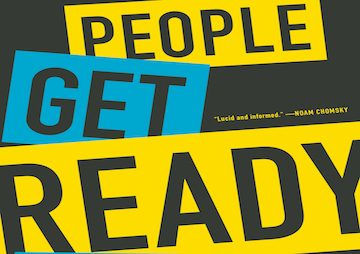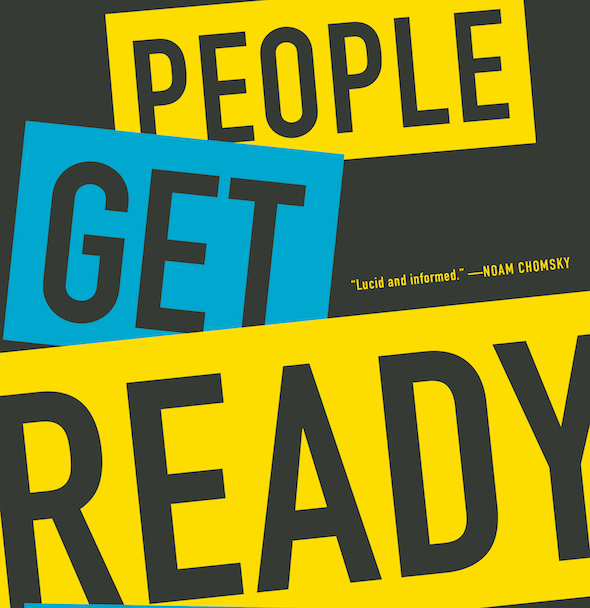Capitalism: A Bad Fit for People in the Technological Revolution
What will happen when technology replaces people in the service, manufacturing and professional industries of an already struggling economy? Media scholar Robert McChesney and journalist John Nichols delve into the topic in their new book.

Nation Books
What will happen when technology replaces people in the service, manufacturing and professional industries of an already struggling economy? And will it get us any closer to the Second Bill of Rights that Franklin Delano Roosevelt said the United States needed to put democracy on solid footing and prevent fascism from taking hold in the United States?
Those are the questions media scholar Robert McChesney and journalist John Nichols grapple with in their new book, “People Get Ready: The Fight Against a Jobless Economy and a Citizenless Democracy,” out from Nation Books. Noam Chomsky described the book as “lucid and informed,” and Thom Hartmann said it is “essential.”
In an interview with McChesney, Truthout editor Mark Karlin asked McChesney about the “grand question” at the center of the book.
“I think it is safe to say that the conventional thinking of the ‘wisdom class’ for decades has been that the more advanced technology becomes (including robots and automated means of production, service and communication), the more beneficial it will be for humans,” Karlon says. “What is the basic challenge to that concept at the center of the new book by you and John?”
McChesney replies:
The conventional wisdom, embraced and propagated by many economists, has been that while new technologies will disrupt and eliminate many jobs and entire industries, they would also create new industries, which would eventually have as many or more new jobs, and that these jobs would generally be much better than the jobs that had been lost to technology.
And that has been more or less true for much of the history of industrial capitalism. Vastly fewer people were needed to work on farms by the 20th century and many ended up in factories; less are now needed in factories and they end up in offices. The new jobs tended to be better than the old jobs.
But we argue the idea that technology will create a new job to replace the one it has destroyed is no longer operative. Nor is the idea that the new job will be better than the old job, in terms of compensation and benefits. Capitalism is in a period of prolonged and arguably indefinite stagnation. There is immense unemployment and underemployment of workers, which we document in the book, taken from entirely uncontroversial data sources. There is downward pressure on wages and working conditions, which results [in] growing and grotesque inequality. Workers have less security and are far more precarious today than they were a generation ago; for workers under the age of 30, it is a nightmare compared to what I experienced in the 1970s.
—Posted by Alexander Reed Kelly.
Your support matters…Independent journalism is under threat and overshadowed by heavily funded mainstream media.
You can help level the playing field. Become a member.
Your tax-deductible contribution keeps us digging beneath the headlines to give you thought-provoking, investigative reporting and analysis that unearths what's really happening- without compromise.
Give today to support our courageous, independent journalists.









You need to be a supporter to comment.
There are currently no responses to this article.
Be the first to respond.